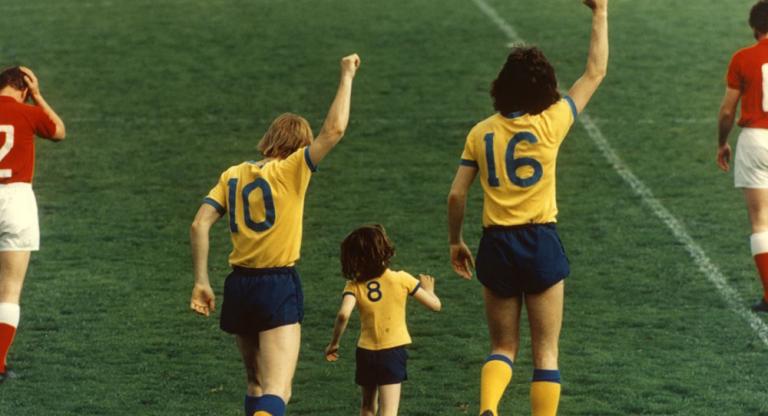Abel Ferrara’s recently published memoir, Scene, has one major omission. Everything from his XXX-rated debut, 9 Lives of a Wet Pussy (1976), to his increasingly abstract and more personal recent work is largely accounted for. But the one film that isn’t mentioned in the book is The Blackout (1997), a work that signaled Ferrara’s move toward, and embrace of, new digital technologies. It’s one that manages an impossible task by merging the drug-addled excesses of Ferrara’s most intense and often stagey dramatic work with the more freewheeling aesthetic idiosyncrasies of the films he has prolifically churned out since.
The Blackout shares multiple similarities with 1993’s Dangerous Game, not least of which is Dennis Hopper as a Handycam-wielding filmmaker that’s as gleefully voyeuristic as he is sadistic. Hopper, for the most part, portrays this figure as a volatile character prone to histrionic outbursts. It’s a close, albeit less somber, variation on Harvey Keitel’s similarly conflicted director in Dangerous Game. And, it’s possible that both are proxies for Ferrara. But where Dangerous Game is ultimately a drama about a relationship in turmoil, The Blackout’s narrative ambitions are greater, as it deals with an entire industry and artform on the verge of imploding. “Film was too expensive for us,” Hopper’s character says over close-ups of CRT screens in The Blackout’s opening moments. It’s a rebellious moment that anticipates what John Waters did a couple of years later with Cecil B. Demented (2000) and its ragtag crew of filmmakers, who operate according to the values of underground filmmaking practiced by both Waters and Ferrara; that’s to say, against the artistic and financial expectations of the studio system.
If there is a message to be found in The Blackout it is that “video is the future,” per Hopper’s character. It’s something Ferrara knew as well. It’s present in the time-stamped standard definition video interspersed throughout the film, at constant clash with Ken Kelsh’s sublimely lit 35mm photography. Ferrara has built a career on unwavering grit; chiefly, his willingness to show his home of New York and his subjects as he saw them. The Blackout saw him advance his most unapologetic impulses, reflecting how filmmakers could co-opt consumer grade video for the multiplex (or arthouse) screen—something very few filmmakers were willing to do in the mid-90s. Paired with the following year’s New Rose Hotel, The Blackout signals a turning point in Ferrara’s career. The big studio chaos of Body Snatchers (1993) was behind him, as was the drama of the Madonna-starring Dangerous Game (also released in ‘93). Following a couple of sturdy, artful genre exercises that felt as tethered to the past as they were to the present—1995’s The Addiction and 1996’s The Funeral—Ferrara did the unexpected: he embraced the future.
The Blackout screens tonight, November 14, at Metrograph on 35mm as part of the series “Alt Divas: Argento / Dalle / Golubeva.”



